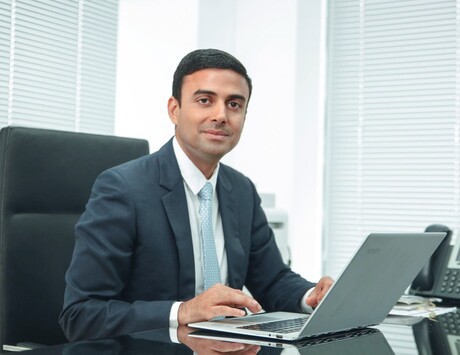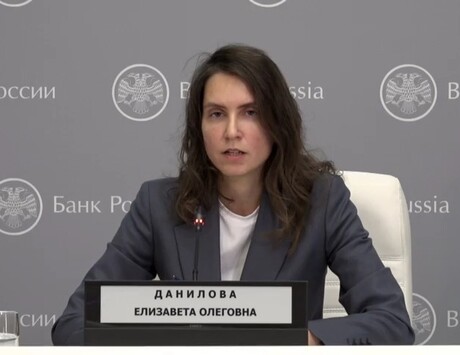Today, the attention of policymakers and analysts around the world is focused on the crisis in Ukraine. They should not just be trying to predict where it goes from here, but also poring over its causes.
Of course, the Ukrainian people were agitated by the shelving of their “pro-European aspirations” by Viktor Yanukovych’s government. Of course, Vladimir Putin went too far while annexing Crimea.
But the main source of Ukraine’s problems was rampant corruption and an unprecedented abuse of power by the ruling elite. Bureaucrats illegally pocketed up to $15bn (£8.9bn) in 2013 alone (equivalent to 11 per cent of the country’s GDP). Fleeing the country, Yanukovych and members of his inner circle allegedly transferred abroad – some in bank wires but most of it in cash – about $35bn.
Today, this money, some of which was paid into Russia, is used to fund separatists in Donetsk, Luhansk and Kharkiv. These just happen to be places where the majority of police officers and civil servants “bought” their positions from Yanukovych’s relatives and friends under Ukraine’s former regime, and are not now interested in resisting the pro-Russian militias.
The situation in Ukraine is not unique. In other countries as well, in recent years, corruption and misuse of power by state officials turned from an economic problem to a political challenge. It greatly facilitated the Arab Spring with all the coercion and instability it caused; dirty money is behind terrorist groups such as Boko Haram in Nigeria and the Lord’s Resistance Army in Central Africa. Everywhere in the world, corruption provokes state failures, violence, and civil conflicts – and now, thanks to Ukraine, there’s one in Europe.
Corruption in the “developing” or “peripheral” countries may greatly affect global politics. In addition to its direct influence – through instability, social unrest and civil wars – it affects developed countries indirectly by making them accustomed to their elites’ corrupt behaviour.
About $1 trillion a year flows to the Western banks and financial institutions from the countries identified by the UN as low and medium-developed nations. A large portion of this cash is stolen by public servants and then laundered in the rich countries of the West. The latter want this money: during the 1990s and 2000s, a powerful lobby of financiers, lawyers and politicians was formed with the specific aim of securing it.
Inevitably, this dirty cash will provoke the growth of corrupt practices in the West. So, bribery and fraud exist on two fronts: in the developing and developed nations. Therefore we are convinced that the West should launch the fight against corruption worldwide as soon as possible.
This fight must attract the attention of the most respected global visionaries, such as Al Gore, Bill Gates or Bono. To fight poverty and malaria in Africa may be humane, but, unfortunately, it’s a very particular cause. Corruption now kills more people worldwide, and results in more harm, than Aids.
The battle should begin with seemingly small but sensitive measures. For example, to start arresting and putting before the courts those fraudsters who were engaged in embezzlement of public funds, even if the authorities of their home countries have left them alone.
In Russia, little progress has been made in investigating a former Federation Council member, Sergei Pugachev, who left his Mezhprombank bank loaded with $2.5bn in unpaid debts. The authorities of the countries where he now hides his holdings should be allowed to pursue him, even without a warrant from Moscow.
Another step would be to require every lawyer in the EU and US to make public a list of companies and individuals whose interests they have been representing for the past 10 years. This will help to uncover those organised communities of lawyers who service fraudsters and highlight potential conflicts of interest that often complicate litigations.
In addition, a special international Anti-Corruption Fund should be set up for exposing corruption, finding assets resulting from corrupt transactions and either returning them to the governments that have signed relevant agreements with it, or managing them until the government signs such an agreement.
The long-term goal should be the creation of a universal system for combating corruption – like the one created to confront apartheid in South Africa 40 years ago.
Options may be many, but one point is clear: corruption today is actively spreading from the peripheral countries to the developed ones, and infecting sometimes solid and transparent institutions. It’s vital we consider how to prevent this becoming an epidemic. As the story of fighting Aids shows, even if a powerful vaccine can’t be found quickly, there is always effective contraception.
This is what the West urgently needs now: a way of localising corrupt practices in the peripheral countries; to prevent corrupt officials from infiltrating the rich countries; and to dismantle the emerging international corrupted community. Otherwise corruption has a real chance of turning into a truly global practice.
Alexander Lebedev is the publisher of ‘Novaya Gazeta’ in Moscow and ‘The Independent’ in London; Vladislav Inozemtsev is a director of the Centre for Post-Industrial Studies in Moscow and a visiting fellow at the Centre for Strategic & International Studies in Washington



